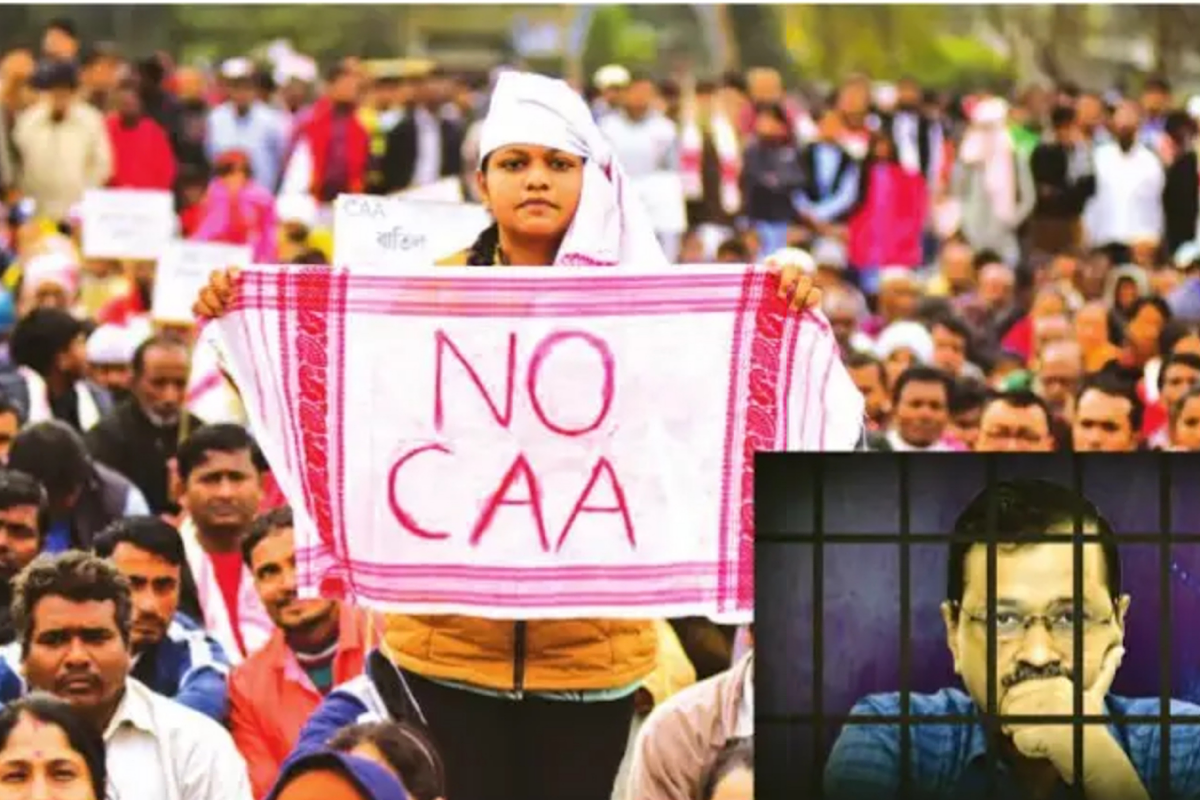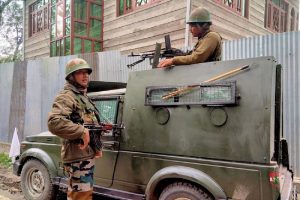The US Commission on International Religious Freedom (UNCIRF) adversely commented on the CAA (Citizenship Amendment Act) rules issued recently by the government. In a statement its spokesperson mentioned, “If the law were truly aimed at protecting persecuted religious minorities, it would include Rohingya Muslims from Burma, Ahmadiyya Muslims from Pakistan or Hazara Shi’a from Afghanistan, among others. No one should be denied citizenship based on religion or belief.” India responded by stating, “The CAA is about giving citizenship, not about taking away citizenship.
It addresses the issue of statelessness, provides human dignity and supports human rights.” India insists that UNCIRF has no locus standi on the matter. The US state government spokesperson, Mathew Miller, had also commented on CAA, which was similarly countered by India. The arrest of Arvind Kejriwal by the Enforcement Directorate was initially criticized by both Germany and the US. India responded vigorously. The MEA summoned both the German deputy chief of mission and the acting US Deputy Ambassador to convey India’s protest. In response to US comments the MEA said, “In diplomacy, states are expected to be respectful of the sovereignty and internal affairs of others. This responsibility is even more so in the case of fellow democracies.
Advertisement
It could otherwise end up setting unhealthy precedents.” While Germany backtracked, the US did not. The German foreign office spokesperson mentioned in a subsequent statement, “The Indian Constitution guarantees basic human rights and freedoms. We share these democratic values with India as a strategic partner.” In a briefing, post the summoning of its envoy in Delhi, the US spokesperson commented a second time on both the arrest of Kejriwal and the freezing of Congress party accounts. India retaliated sharply once again. The same two nations had earlier aired similar views on the disqualification of Rahul Gandhi. Breaking norms of interference in internal matters, the office of the UN Secretary General also raised the arrest of Kejriwal. Stephane Dujarric, spokesperson for UN Secretary-General Antonio Guterres, responding to a question on the arrest of Kejriwal and the freezing of Congress bank accounts mentioned, “everyone’s rights should be protected, including political and civil rights.”
India responded sharply. Inputs mention that both spokespersons (US and UN) responded to similar questions raised by a Bangladeshi journalist who is said to be a fugitive from his own country. There are differing views on why foreign governments reacted to the arrest of Kejriwal and not of another CM, Hemant Soren, who resigned moments before his arrest. Additionally, was there an ulterior motive to their comments or was Kejriwal more in the limelight being CM of Delhi? Also debatable is whether the statement of Sikhs for Justice leader, Gurpatwant Singh Pannun, a known CIA asset, that his organization paid Kejriwal USD 16 Million, or around Rs 133 crores, to fund his election campaign in 2014 and 2022, was a reason for the US to display sympathy for Kejriwal.
Additionally, is the US conveying a message by its continued statements? However, commenting on India’s internal matters as also its decisions, political or otherwise, has witnessed a phenomenal rise in recent years. Earlier it was Pakistan and on occasions, China, which criticised the Indian government’s decisions. However, since India’s global rise, this has increased from the West and reduced from Pakistan and China. The scrapping of Article 370, suspension of the internet to prevent spread of rumours to instigate violence, protests against the NRC (National Register of Citizens) and management of the farmers’ protest are some events which invited global observations, despite there being almost no loss of lives as also the decisions being legally sound.
Simultaneously, police violence against farmers in Europe and Canada, which were far more suppressive than in India, were justified as correct. The Indian judiciary has also received derogatory comments despite being independent and impartial. India is a growing power which cannot be ignored and hence would remain in the global limelight. Its decisions have global ramifications, examples being restrictions on export of foodgrains, vaccine policies and procuring Russian oil. Post his visit to the UN General Assembly session in 2022, Foreign Minister S Jaishankar mentioned, “Today our opinions count, our views matter and… have actually today the ability to shape big issues of our time.” Without India’s military cooperation, operating in the Indo-Pacific is impractical.
India is now a power the world seeks to engage with. As Minister Piyush Goyal stated last week, “The world today knows that when you negotiate with India, you’re negotiating with a USD 35 trillion economy, not a USD 3.5 trillion economy. Unless we get that (Free Trade Agreement) on our terms, we don’t rush into closing any FTA negotiation.” Added is the impact of Indian domestic politics on the global stage. Indian politicians who may be out of favour with the masses exploit global platforms to comment adversely on the country’s leadership and policies. No democracy, including in the West and India, is perfect; however, washing ‘assumed’ dirty linen on international platforms to gain credence does not bode well. It is also easy to blame the world for adopting an anti-India bias as Dr Jaishankar justified in Munich, “It is because the West has had a bad habit for a long time of commenting on others.
They somehow think it is some kind of God-given right.” It is similarly simple to advise others to look inwards at their own flaws prior to targeting India. However, we also need to look in the mirror on our policies and decisions. Arresting major opposition figures and blocking accounts of political parties just before elections does not send the right global message, no matter how well the government attempts to justify or counter it. The world will view it as a subversion of democracy.
Nations which once controlled over half the world through colonization are way below India’s global stature and economy, hence there will be jealousy. Every move, every decision, taken by the government will come under the global microscope. India is no longer a corner of the world which can be ignored. The government needs to be prepared for criticism of all its actions. It must respond forcefully, even if those commenting are allies. India must no longer be taken for granted. (The writer is a retired Major-General of the Indian Army











